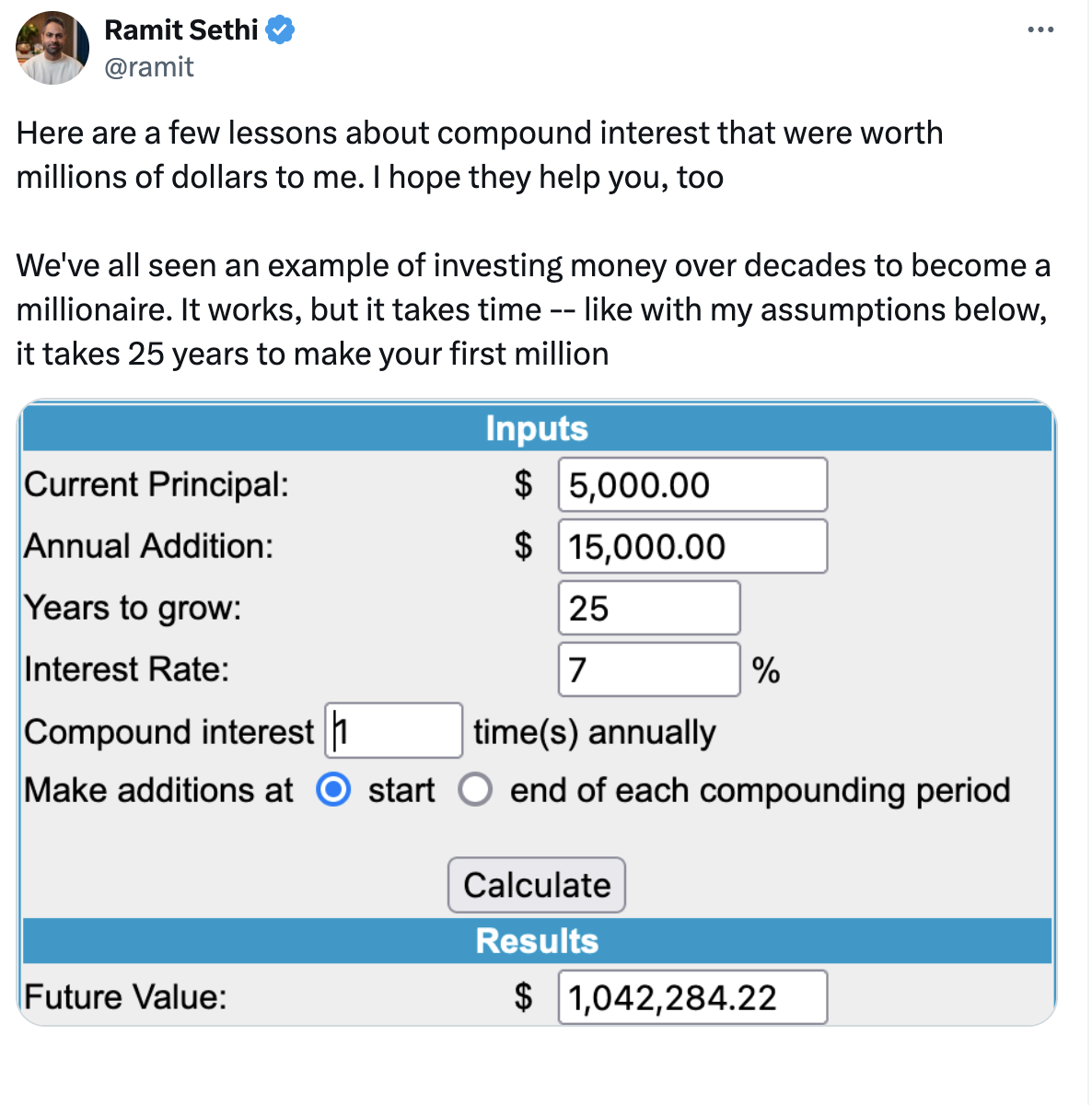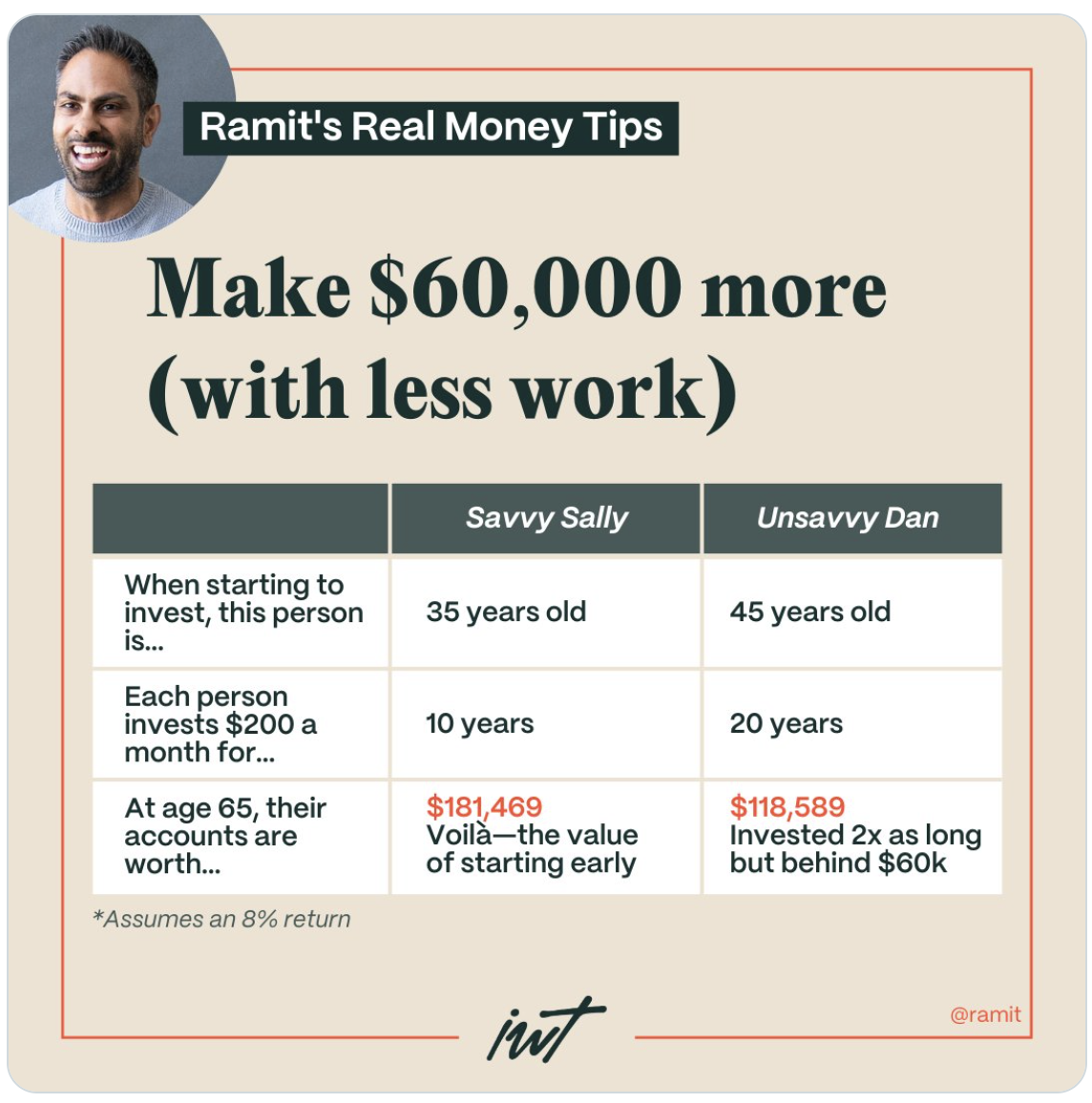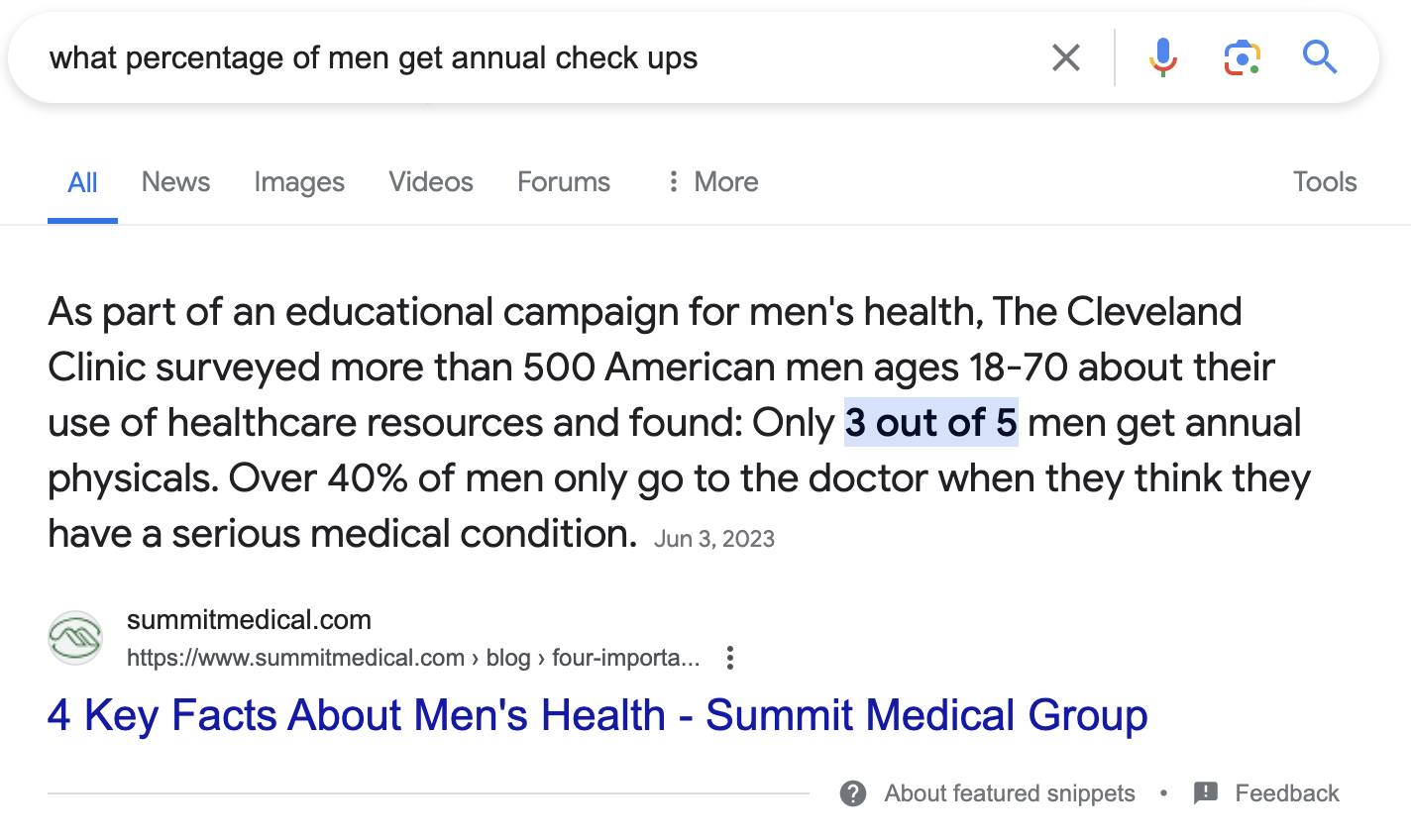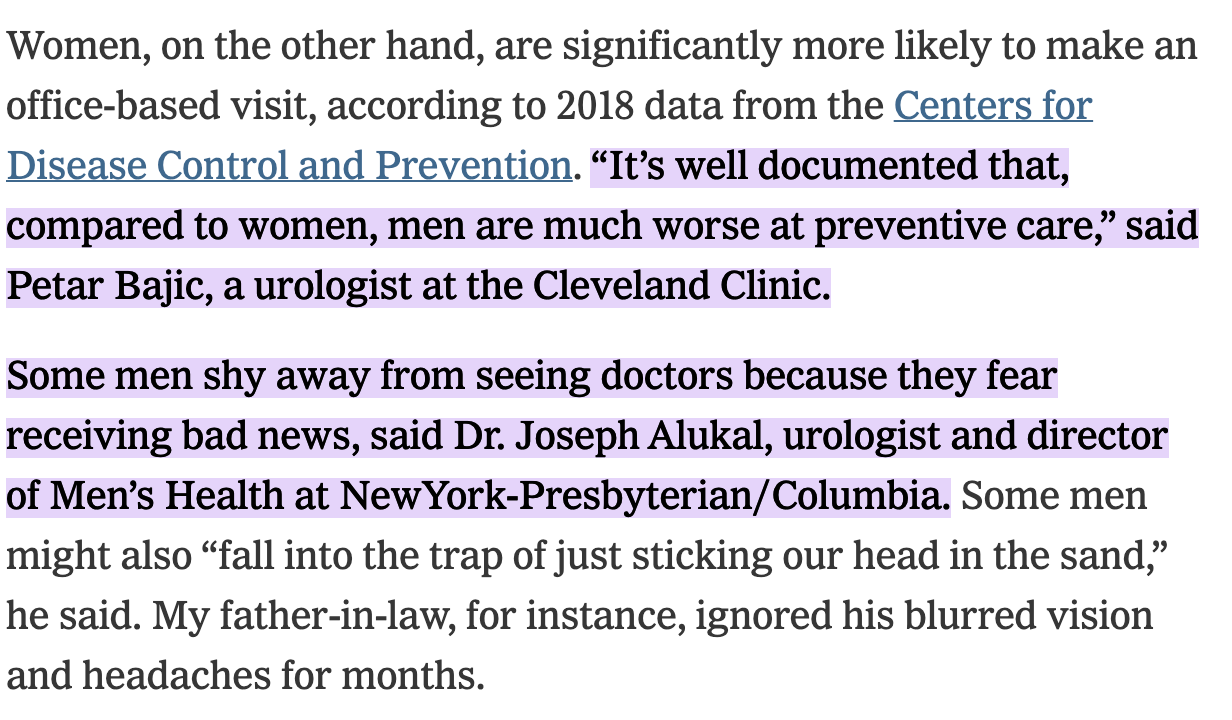Two Costly Mistakes People Make In Their 20s and 30s
Today, I’m going to share the two mistakes I see people my age making that could have devastating effects over the next few decades.
One mistake may cost you a million dollars over 30 years. The other drastically increases your odds of sickness and death.
Both mistakes can be traced back to prioritizing the short term over the long term, and a lack of appreciation for the compound effect.
Life is hard! Most people are too busy and struggle to get through the day. You think they have the time or energy to imagine their life in a few decades? No no no.
The good news? You can quickly resolve these mistakes in minutes, and reap the benefits for the rest of your life.
People my age are leaving millions and years on the table by:
Not investing enough
Not making time for a yearly physical
Mistake 1 - Not Investing Enough
Plenty of people understand that investing is something they “should” do, but few understand the outsized returns of investing when you’re young.
(You can apply this to investing in your relationships, health, education, business, etc., but we’ll stick to moolah today because money talks.)
When you’re young, you have decades for your money to compound. That means a dollar invested today could be worth 2, 3, or 4x a dollar you invest when you’re 50.
An few examples from my favorite finance author, Ramit Sethi:
You can see how not investing in your 20’s or 30’s can have cost mind-blowing amounts of money.
NOT FINANCIAL ADVICE, FROM A PHYSICAL THERAPIST - Investing doesn’t need to be complicated. Adjusted for inflation, the average return of the S&P 500 over the past 30 years is 7.74%. Some years it goes down, others it goes up (or way up, like these past 18ish months). Over a long enough time horizon, the risk is minimal.
The money examples are fascinating, but investing in your health is the most important decision you can make.
Mistake 2 - Not Making Time For A Yearly Physical
Nobody likes going to the doctor, especially men.
I’m a healthcare professional, and even I feel resistance when thinking about an annual check up.
“I feel fine, I’m probably fine.”
“I’m too busy. I’ll do it next year.”
'I'll just go to the doctor’s if something feels wrong.’
The problem with me (and other men my age) letting these thoughts guide our behavior is two- fold.
1. You can’t feel elevated blood pressure, blood lipids, blood sugar, or the early stages of cancer.
2. The negative effects of poor health are insidious and compound. They get worse the longer you live with them.
High blood pressure for a few hours, days, or weeks is fine. High blood pressure for decades is a recipe for an early grave.
The overall exposure - i.e. the years you live with the condition multiplied by the severity of the condition - is what leads to stroke, heart attacks, dementia, diabetes, etc.
Some stats for you:
Long-term exposure to elevated cholesterol significantly increases the risk of cardiovascular disease, which is the leading cause of death globally. High levels of LDL cholesterol can lead to atherosclerosis, doubling the risk of heart disease and increasing the risk of stroke by 20%. Research shows that for every 1% decrease in LDL cholesterol, there's a corresponding 1% decrease in coronary heart disease risk.
Long-term exposure to elevated blood pressure significantly increases the risk of cardiovascular diseases, including heart attack and stroke. Studies indicate that each 20/10 mmHg increase in blood pressure doubles the risk of cardiovascular mortality. Alarmingly, nearly half of adults with hypertension are unaware of their condition.
Long-term exposure to elevated blood sugar significantly increases the risk of developing type 2 diabetes. High blood sugar levels can cause damage to the heart, kidneys, eyes, and nerves. Individuals with diabetes have a two to four times higher risk of heart disease and stroke compared to those without diabetes. By 2050, it is projected that up to 33% (one-third) of Americans will have diabetes if current trends continue, according to estimates by the Centers for Disease Control and Prevention (CDC).
That’s why it’s critically important you keep tabs on this stuff on a yearly basis.
What To Do Today
Two actions you can take today to resolve these mistakes (each takes a few minutes):
1. Set up automatic monthly deposits into an investment account. Some tactical advice here, and some overarching concepts here.
2. Call your doctor and schedule your yearly physical. Specifically, tell him/her you’d like to get your blood pressure checked and have bloodwork done to assess your blood lipids and metabolic health.
Then, if you have questions about the results and want to go over them in detail, set up a free call with me below:
I always tell my patients, “I’m not sure how much it will help, but I know it won’t hurt.”
I realize this article may come off as a bit tone-deaf, preachy, etc. After all, I’m 27, there is so much I don’t know, and I’ve changed my mind often over the years.
That said, the risk vs. reward ratio is massive. Investing a portion of your income into an index fund and catching high blood pressure/lipids/sugars early are both low risk, potentially life-changing actions that - due to the long time horizon - matter more when you’re in your 20s or 30s, compared to someone in their 50s or 60s.
I’m 99% sure I’ll agree with my current line of thinking when I look back on it in 30 years.
That is, of course, assuming the sun, our A.I. overlords, or the 2024 president elect haven’t annihilated us by then.
Best,
John
P.S. The tastings have been the best part of the pre-wedding process, and it’s not even close!
3 Steps You Can Take
Apply for coaching - If you’re ready to start, you can fill out a coaching application here (it takes 90 seconds or less). Best case, you change your life. Worst case, I’ll help you draw up a road map to get closer to your goals.
Sign up for my newsletter - If you’d like to hear more, sign up for my mailing list here.
Keep learning - You can check out my other articles here. Nobody asked me to, but I’ve spent a ton of time researching everything from artificial sweeteners to saturated fat to testosterone and more, so you don’t have to.










